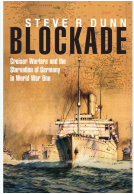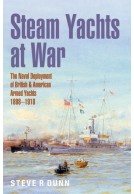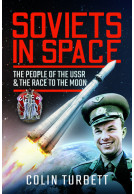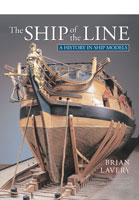Battle in the Baltic (Paperback)
The Royal Navy and the Fight to Save Estonia and Latvia, 1918–1920

Pages: 304
Illustrations: 35 black & white
ISBN: 9781399096553
Published: 3rd November 2021
(click here for international delivery rates)
Order within the next 1 hour, 39 minutes to get your order processed the next working day!
Need a currency converter? Check XE.com for live rates
| Other formats available | Price |
|---|---|
| Battle in the Baltic ePub (5.8 MB) Add to Basket | £9.98 |
Though, for most participants, the First World War ended on 11 November 1918, the Royal Navy found itself, despite four years of slaughter and war weariness, fighting a fierce and brutal battle in the Baltic Sea against Bolshevik Russia in an attempt to protect the fragile independence of the newly liberated states of Estonia and Latvia.
This new book by Steve R Dunn describes the events of those two years when RN ships and men, under the command of Rear Admiral Walter Cowan, found themselves in a maelstrom of chaos and conflicting loyalties, and facing multiple opponents – the communist forces of the Red Army and Navy, led by Leon Trotsky; the gangs of freebooting German soldiers, the Freikorps, intent on keeping the Baltic states under German domination; and the White Russian forces, bent on retaking Petrograd and rebuilding the Russian Empire. During this hard-fought campaign there were successes on both sides. For example, the Royal Navy captured two destroyers that were given to the Estonians; but the submarine L-55 was sunk by Russian warships, lost with all hands. Seeking revenge in a daring sequence of attacks and using small coastal motor boats, the RN sank the cruiser Oleg and badly damaged two Russian battleships.
Today few people are aware of this exhausting campaign and the sacrifices made by Royal Navy sailors (three VCs were won), but the pages of this book retell their exciting but forgotten stories and, using much first-hand testimony, bring back to life the critical naval operations that prevented the retaking of the new Baltic countries that Churchill saw as an essential shield against the encroachment of the Bolsheviks into Europe. An uneasy peace prevailed until 1939.
Battle in the Baltic is recommended as a very readable and up-to-date narrative that puts the Royal Navy’s operations in the Baltic after the First World War into context and pays homage to the men who served and died there.
The Northern Mariner/Le marin du nord - Vol. 32, No. 3 (Fall 2022)
Featured by
Forum Navale
"The Royal Navy was critical to the success of Latvia and Lithuania in keeping their independence. This book explains how."
Seapower Magazine, June 2022
"Add in abysmal weather conditions, post-war penny-pinching, war-time minefields, and hot-and-cold political maneuverings and you have one interesting account of an obscure, or at least obscure to me, mini-war."
Historical Miniatures Gaming Society, May 2022
"This work is a valuable addition to the historiography of WW1 with comprehensive appendices, notes and index it definitely one for the library of anyone with an interest in the aftermath of the Great War."
Martin Willoughby, Wessex Branch WFA
Battle in the Baltic is a welcomed addition to scholarship on the Royal Navy during World War I, and Dunn’s book uncovers some lesser-known history about the Royal Navy. This reviewer recommends this book to anyone interested in naval warfare during World War I and the Royal Navy. However, what sets Dunn apart is that this book is written to appeal to academics and those with just a general interest in maritime warfare. Plus, bringing a lesser-known naval history to light, Dunn masterfully pays homage to those that lost their lives.
Nautical Research Journal
This is an accessible book, and the reader gains a better understanding of the political turmoil in the Baltic and the indecision at home. The book raises some interesting questions and is recommended.
Warship Annual 2021 Edition
'The author has produced an enthralling and inspirational account of how a small RN force was deployed so successfully by its commander and his officers and men to the greatest credit of the Royal Navy... Most Highly Recommended’
Fire Project (@Firetrench) 19 August 2020
‘…besides those with pure history interest, the book about the Baltic Campaign in 1918-20 is a good appetiser for those being deployed to the eastern Baltic Sea’
The Naval Review
This is a interesting account of this little known campaign (even by the standards of the British intervention in Russia!), and gives a good idea of just how complex the situation was this area in the aftermath of the First World War and the Russian Revolution.
History of War
'Overall, Dunn mixes politics and combat action well in an interesting narrative .....Dunn’s accounts of the fighting, and there was lots of it, are well written…. this is a valuable addition to the history of the Royal Navy and the United Kingdom’s role in the post-WWI world'
Robert Neil Smith, Naval Wargaming
This was an excellent book, very clear, precise and very well written by the author Steve Dunn who has written several naval books. What made this book good was that it was very readable for a beginner or for someone who had good knowledge of the subject. I found it astounding that this was a little written about subject and I do think it needs delving into more. I found this book a very good read and easy to get into, I would be happy to give it a 4 star rating.
UK Historian
Read the full review here
Overall, Dunn’s text is well-presented and most readers will not get “lost” in the tangled web that highlights the story of this intervention. While most people in the West have forgotten about this particular Royal Navy action, it is fitting that both of these Baltic countries have not. Thanks to Dunn, we have now also been reminded of this endeavour.
The Northern Mariner/Le marin du nord, (Vol. XXIX, No. 4, Fall 2019)
This is a well-written and very readable account of an important but little-known campaign that still has relevance today. It is interesting to reflect on just how many lessons about the application of force in limited war situations have been learnt and then forgotten. The author reminds us that intervention can lack value if the aim is not well defined or if forces are withdrawn before the aim has been achieved. Apart from its obvious interest to readers with an interest in naval history, this is a book that any naval professional or, dare I say, politician involved in foreign affairs should add to their reading list. I recommend it highly.
Australian Naval Institute
Read the full review here
This is a military campaign involving the British Navy that occurred after the end of the First World War, and it's a campaign I had no prior knowledge of. Pen and Sword regular author tells the tale of the RN's involvement in stopping the annexation of Estonia and Latvia by the Soviet Union.
Books Monthly
'Apart from its obvious interest to readers with an interest in naval history, this is a book that any naval professional or, dare I say, politician involved in foreign affairs should add to their reading list. I recommend it highly'.
The Australian Naval Institute
‘Battle in the Baltic is a fine tribute to those Briton’s who served in the Baltic between 1918 and 1920, especially the 128 servicemen who made the ultimate sacrifice’
Warships International Fleet Review, April 2020
Article: Barnt Green author invited to Latvian Embassy to talk about war book – words by Michael Beardmore featured by
Bromsgrove Advertiser, Halesowen News, Hereford Times, Evesham Journal, Ludlow & Tenbury Wells Advertiser, Tewkesbury Admag, Redditch & Alcester Advertiser
Article: Devon war hero honoured in new book as featured by
Exeter Daily, 11th February 2020
Article: Bury author receives VIP invite to Latvian Embassy as featured by
Your Independent, 6th February 2020 - words by Daniel Almond
Featured in Worcester News here
Worcester News
Author article on History Hit
History Hit
As featured in Your Independent, Bury and Bolton here
Your Independent, Bury and Bolton
A very well written and interesting account of the exploits and hardships of the Royal Navy in the Baltics. The political background is a welcoming addition that provides extra depth to the narrative showing why specific decisions were made.
Arsenijs Korabelskis
Unfortunately author's total disregard and neglect of Russian/USSR sources (at least) leads to multiple factual mistakes that were easily avoidable. For example - L55 submarine was raised by the USSR but never carried a name "The Atheist" nor was lost again with 50 men on board as the author claims, moreover during her time in the Read Fleet she was called L55, as all USSR u-boats had letters and numbers in their names (K, L, D, Sh, M). The battleship Petropavlovsk was never sunk by a CMB during the Kronshtadt raid, she didn't even receive a single hit. Petropavlovsk will later be renamed as Marat and will continue service well into the WW2, when she would receive a nearly fatal Stuka bomb, only to experience the detonation of forward magazines and continue service as a floating battery. Bolshevik cruisers that mentioned on page 59 were already rearmed by that point and instead of 6 inch guns carried multiple 130mm guns. All this information is easily accessible and it is very strange that Mr. Dunn didn't bother himself with this and as a result the shadow has been cast over the otherwise quite solid account of the war in the Baltics.
This is a very readable narrative of the events surrounding the extended workings after the Armistice in November 1918 that placed the Royal Navy in a constantly changing situation with respect to the Bolsheviks, the Germans and the inhabitants of the Baltic States whilst the Great Powers at Versailles chose to avoid and evade. Despite this the Baltic States eventually prevailed by expelling the Germans and the Bolsheviks to enjoy a short period of independence until the next German/Russian conflict. The involvement of the Navy in the campaign demonstrated the limited actions available and the limited outcomes in the absence of a determined strategy and this book combines the tactical and strategic context very well.
Michael McCarthy
Michael McCarthy. Battlefield Guide
About Steve R. Dunn
STEVE R DUNN is an author with a special interest in the Royal Navy of the late nineteenth century and the First World War. He has written biographies and narrative histories including Blockade, Securing the Narrow Sea, Bayly's War, Southern Thunder, The Battle of the Baltic, The Power and the Glory, British Naval Trawlers and Drifters in Two World Wars, The Harwich Striking Force, The Petrol Navy and most recently Steam Yachts at War, all published by Seaforth. Steve lives in Worcestershire.




















